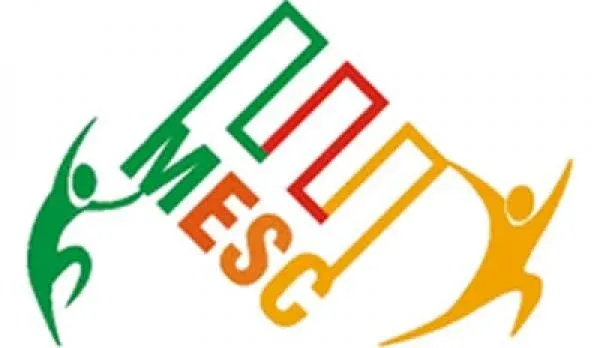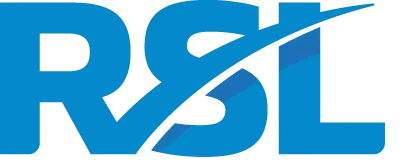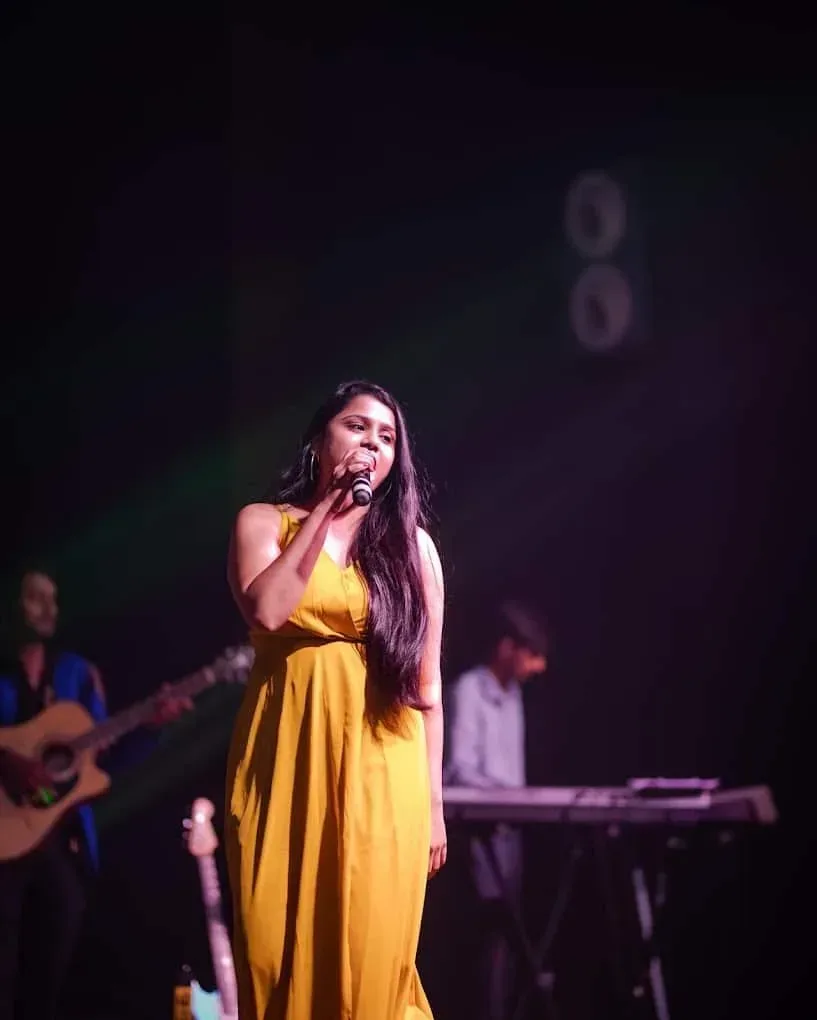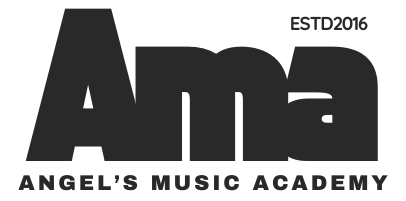Diploma in Music Production & Performance
May 20, 2025 2025-05-29 19:30Diploma in Music Production & Performance
Diploma in music performance & production
1 year Course
Tuition fees
In Campus Placements
We take pride in being pioneers in India, providing a Diploma in music performance & production
Placement Record
Average LPA
Alumini Network
Course Highlight
Choose your specialization in vocals and instrument
Learn from experienced faculty and working professionals
Get hands-on with studio gear and live performance equipment
Build a professional music portfolio by course end
Available in both online and offline formats
Language support for both English and Hindi mediums
Course outcomes
Graduates of this diploma will:
- Operate and produce music using industry-standard DAWs
- Understand voice and instrumental techniques tailored to various music styles
- Record, edit, and mix audio for studio and live performance
- Compose songs with effective structure, melody, and lyrics
- Perform confidently on stage and in studio environments
- Promote their music via digital marketing strategies
- Understand royalties, publishing, and monetization models in the music industry
- Create a portfolio showcasing original music, collaborations, and performances
- Build a personal brand and career roadmap in the music business
Career Pathways
- Music Producer
- Singer / Vocal Coach
- Instrumentalist / Live Performer
- Sound Engineer / Studio Technician
- Content Creator / YouTuber
- Music Director / Arranger
- Artist Manager or Independent Artist
Diploma in Music Performance & Production Modules
Quarter 1 (Months 1–3): Core Skills
| Subject | Key Topics | Credits |
|---|---|---|
| Ensemble I | Group performance, timing, basic improvisation | 2 |
| Contemporary Harmony I | Major/minor scales, triads, basic voice leading | 2 |
| Music Theory & Notation | Western notation, rhythm dictation, chord charts | 1 |
| Ear Training I | Intervals, rhythm clapping, melodic recall | 1 |
| Reading Lab I | Notation reading (drums/vocals) | 1 |
| Private Lessons I | Western Vocals OR Drums | 1 |
| Technique Lab I | Breathing (vocals), stick control (drums) | 1 |
| Basic Piano for Musicians | Keyboard harmony, chord progressions | 1 |
| Hindustani Classical I | Basic Alankars, Thaats, Vocal Taal | 1 |
| Tabla & Rhythmic Cycles I | Teen Taal, Dadra, basic bols for drummers | 1 |
| Introduction to DAWs | FL Studio / Logic / Ableton basics | 1 |
| Digital Marketing I | Instagram setup, artist identity, content pillars | 1 |
| Total Credits | 14 |
Quarter 2 (Months 4–6): Applied Musicianship
| Subject | Key Topics | Credits |
|---|---|---|
| Ensemble II | Genre playing: rock, pop, Indian fusion | 2 |
| Contemporary Harmony II | Modes, 7th chords, slash chords | 2 |
| Composition & Arranging I | Song form, mood-based arrangements | 1 |
| Ear Training II | Chords, rhythmic transcription | 1 |
| Reading Lab II | Syncopation, rests, tuplets | 1 |
| Private Lessons II | Soloing, breath control, fills | 1 |
| Technique Lab II | Vocal dynamics or hand-foot coordination | 1 |
| Hindustani Classical II | Raag Yaman, Bhupali, Taal variations | 1 |
| Tabla & Rhythmic Cycles II | Jhaptaal, Keherva, intro to tihais | 1 |
| Recording Techniques I | Vocal mic setup, drum mic techniques | 1 |
| Digital Marketing II | YouTube setup, shorts, hooks, thumbnails | 1 |
| Total Credits | 13 |
Quarter 3 (Months 7–9): Fusion & Creativity
| Subject | Key Topics | Credits |
|---|---|---|
| Fusion Ensemble | Indian-Western fusion, improvisation | 2 |
| Stylized Harmony | Reharmonization, modulations | 2 |
| Composition & Arranging II | Writing for bands, creating grooves | 1 |
| Modern Improvisation | Indian alaaps, scat singing, fills/rolls | 1 |
| Private Lessons III | Student-specific direction | 1 |
| North Indian Classical III | Raag Bageshree, improvisation | 1 |
| Tabla & Rhythmic Lab III | Laykari, tihai compositions | 1 |
| Recording Techniques II | Mixing, EQ, compression, vocal effects | 1 |
| Digital Marketing III | Viral reels, social ads, trends, boosting | 1 |
| Custom Elective | (DJing / Music Therapy / Film Scoring) | 1 |
| Total Credits | 12 |
(Months 10–12): Artist Showcase & Career Launch Digital Marketing Pathway (Throughout the Year
| Key Topics | Credits | |
|---|---|---|
| Ensemble IV | Showcase preparation: live & studio versions |
2 |
| Band Leadership & Stage Craft | Leading rehearsals, transitions, intros | 1 |
| Private Lessons IV | Gig/jury ready material | 1 |
| Capstone Project | Record and release a single or EP | 3 |
| Portfolio Building | EPK, performance reel, press kit | 1 |
| Digital Marketing IV | Spotify setup, release strategy, monetization | 1 |
| Final Jury & Showcase Performance | Stage + oral viva | 1 |
| Total Credits | 10 |
| Quarter | Topics |
|---|---|
| Q1 | Instagram & brand identity (bio, aesthetic, grid) |
| Q2 | YouTube setup, basic editing, YouTube Shorts |
| Q3 | Paid promotion, content trends, influencer collabs |
| Q4 | Spotify for Artists, monetization, release strategy |
Why us?
Small Batch strength
Limited to 4 students per batch for personalized attention and tailored instruction.
Free access to Studio
Enjoy complimentary access to our professional recording studio to hone your recording skills.
Expert Faculties
Learn from experienced and highly qualified instructors with extensive industry experience.
International Grading System
Benefit from a globally recognized grading system to track and showcase your progress.
Collaboration with Industry Professionals
Gain opportunities through our connections with record labels, event managers, and artist managers.
Free Practice Rooms
Book practice rooms at no additional cost to facilitate uninterrupted practice and rehearsal.
| Course Name | Semester | Fees | Days | Batch Strength |
|---|---|---|---|---|
| Music Production + Performance | 2 | 2,55,000 | 4 days a week | 5 students in a batch |
Our Affiliations





Why we are known for the Best Music College in India?

Pranay Kumawat
Music Producer
Ishita Parakh
Singer- Songwriter
Heena Gupta
SingerFAQ
1. What is a Diploma in Sound Engineering?
A Diploma in Sound Engineering is a comprehensive program that provides students with theoretical knowledge and practical skills in audio production, recording, mixing, and mastering. It typically spans one year and prepares individuals for careers in the audio industry.
2. What will I learn in a Diploma in Sound Engineering program?
In a Diploma in Sound Engineering program, you will learn fundamental principles of sound, acoustics, audio equipment operation, digital audio workstations (DAWs), recording techniques, mixing, mastering, and post-production. The curriculum covers both theoretical concepts and hands-on experience.
3. How long does it take to complete a Diploma in Sound Engineering?
A Diploma in Sound Engineering is usually a one-year program, although the duration may vary depending on the institution and the specific curriculum offered.
4. What are the career opportunities after completing a Diploma in Sound Engineering?
Graduates of a Diploma in Sound Engineering program can pursue various career paths, including recording engineer, mixing engineer, mastering engineer, live sound engineer, post-production sound technician, music producer, sound designer, studio technician, acoustic consultant, and more.
5. Is prior experience or knowledge in sound engineering required to enroll in a Diploma in Sound Engineering program?
While some programs may prefer applicants with a background in music or audio production, many Diploma in Sound Engineering programs accept students with diverse educational backgrounds. However, a passion for sound and music, as well as a willingness to learn and experiment, are essential qualities for success in the program.
6. What equipment and software will I have access to during the program?
Diploma in Sound Engineering programs typically provide access to professional audio equipment, including microphones, audio interfaces, mixing consoles, and studio monitors. Students also have the opportunity to work with industry-standard software such as Pro Tools, Logic Pro, Ableton Live, and Adobe Audition.
7. Will I have opportunities for hands-on experience and practical training?
Yes, hands-on experience is a crucial component of most Diploma in Sound Engineering programs. Students participate in recording sessions, mixing exercises, mastering projects, and live sound productions to apply theoretical knowledge in real-world scenarios and build their skills.
8. Can I pursue further education or specialization after completing a Diploma in Sound Engineering?
Yes, graduates of a Diploma in Sound Engineering program may choose to pursue further education, such as a bachelor’s degree in audio engineering, music production, or related fields. Additionally, professionals can pursue specialized certifications or advanced training in specific areas of audio engineering to enhance their skills and career prospects.
9. How do I apply for a Diploma in Sound Engineering program?
To apply for a Diploma in Sound Engineering program, you typically need to submit an application form, academic transcripts, letters of recommendation, a personal statement, and sometimes a portfolio of your work (if applicable). Check the admission requirements and application process of the specific institution offering the program.
10. What are the advantages of earning a Diploma in Sound Engineering?
Earning a Diploma in Sound Engineering equips you with the technical skills, industry knowledge, and practical experience needed to pursue a rewarding career in the audio industry. Whether you aspire to work in music production, film, television, gaming, or live events, a diploma in sound engineering opens up diverse opportunities for creative and professional growth.
Explore All Courses
Choose from more than 20+ options in music & technology.
